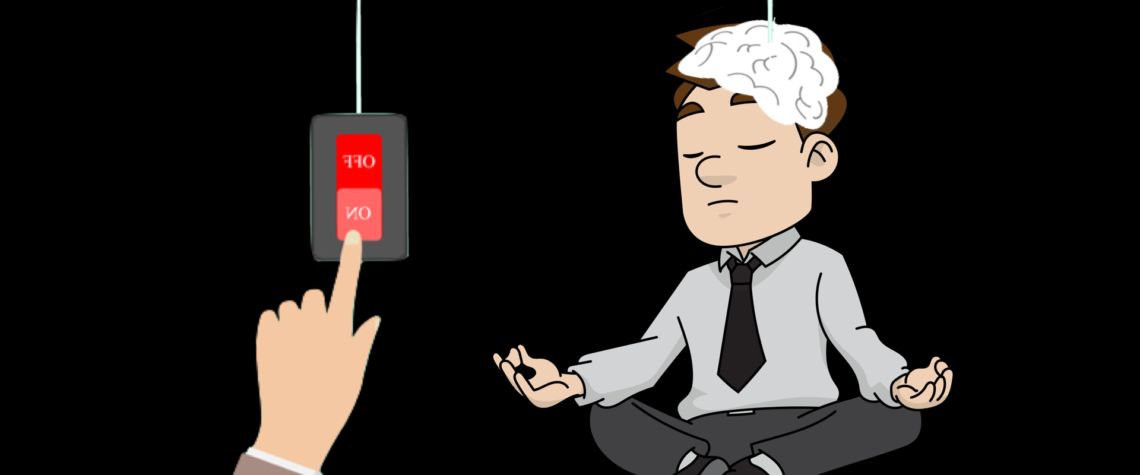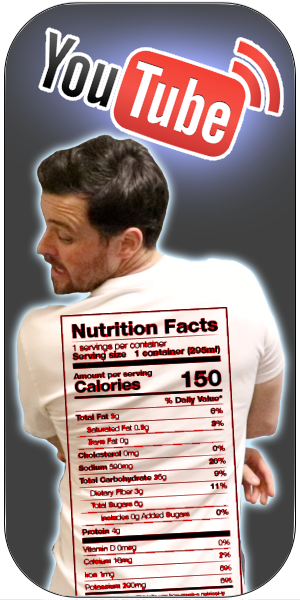Mastering Your Domain Part IV – Staying Still
How many times have you walked into a room completely locked in, the mission clear, find “X” item that’s gone missing. You scan the room like predator searching for Arnold in the jungle, and then pause, “What the hell was I Looking for?” Now, the New School version of that is picking up our handheld super computer with a distinct task in mind, and before you realize what happened, you’ve liked 17 Instagram pics, and have Snapchat loading. It’s almost a 21st century innate reaction to finish unlocking our phone with a tap of our favorite social media app. And after ten minutes the same question arises “Why’d I pick up my phone in the first place?”
The Noise is real. In fact, the signal-to-noise ratio today has hit record levels. Attention span is moving more towards a “practiced skill” rather than a natural born trait. It’s simply too easy to fall into a YouTube Vortex, twitter investigation, or putting the 6 degrees of Kevin Bacon theory to the test on Facebook. It gets exhausting, and when we decide to release our mighty grip from this mini distraction device, we’ll typically find ourselves in yet another rabbit-hole five minutes later.
The non-stop “Live” feed in our hands has distracted us from the “Greatness” of the “Now“, the “Stillness” in the “Action“, and the “Awareness” of “Silence“. Until recently, I’ve never really understood (or thought much of) the practice of staying still and doing nothing (or what some call meditation). But, after digging into the research and putting it to practice, it’s become evident that doing nothing, has the ability to do anything and everything.
Finding Stillness
As most of us have figured out by now, our mind has quite the mind of it’s own. It can take us on a psychological and emotional roller coaster in a matter of seconds. Even during sleep, it’s producing “Twlight-Zone” like entertainment. If your brain was a coworker (and you liked them) you’d pull them aside and say “why don’t you take a break” or “Chill Out! No reason to short Circuit“. We’re often moving at such a pace that it’s easy to let our mind run wild, if i had to characterize my own at times, I’d say it’s similar to “Wild Thornberrys Donnie” Wild! This mushy membrane is capable of altering the chemical balance of our body, triggering biologically reactions that are often detrimental to our health, especially over the long term. So why not teach ourselves how to chill out?

I’ll be the first one to admit my skepticism of meditation. How could doing nothing, Do So Much? After a week (or two) of 20 minute daily sessions, I realized there’s something empowering about being able to shut down your engine at will. Think of it this way, when a car starts smoking, the initial reaction is to shut it off! So why don’t we take that same concept and apply it to our minds when we become overwhelmed (and often times stressed) ? We’re not going anywhere (just like the car), we’re just giving our mind (or engine) a few minutes to cool off. For this brief time, you’ll focus your attention on the “Here and Now“, letting go of everything and becoming as present as possible.
Meditative practices have been around for a Long time, the first documented evidence dates back between 5,000 and 3,500 BCE. When things stick around for that long, it’s typically for good reason. I’ll start off by saying that there’s no right or wrong way to do it, it’s really all about finding what works for you. And having some good old fashion quality time with yourself.
An Awkwardddddd Moment with Yourself
When I first started daily meditation it was rather interesting, turning down the lights, playing some soothing music, closing my eyes and just sitting still. Trying to clear my head, as my mind wondered like a toddler who escaped the playpen. Wondering if it was working, and how long before I get my monk robe and Bachelors in Zen?
Your first “Go” at meditating will probably not deliver instant results, there’s a good chance that you’ll find it’s extremely hard to keep your mind from running wild (which is totally normal). Like anything it takes a little time and practice, so trust the process. Your gonna feel weird, awkward, and silly, Get Over It! The Good news is – there are many different ways to meditate, the internet is riddled with instructional videos, blogs, and instructor-led courses. There are also a number of meditation apps that will guide you through the practice. With a simple search on the Google Machine you’ll have all the instruction you’ll ever need!
But why are we doing this again?
Why It Belongs in Your Daily Routine
Meditation is so Hot Right Now! The research and evidence around its affects continues to pile up. It’s been linked to reducing stress, lowering anxiety, increasing attention-span, aiding sleep, and improving overall mental health. In a study of US and Chinese undergrads, an increased dose of mindfulness meditation significantly reduced the stress hormone cortisol and significantly increased immunoreactivity. The data suggests that subjects with only 1 month of meditation training were able to resist the stress of everyday life to a greater degree than they were able to before training [1]. Along with it’s ability to alter central functions and autonomic systems, data suggests that it helps with Irritable Bowel Syndrome (IBS) symptoms {2} and aids longevity {3}. That’s why it’s often recommended to meditate prior to eating.
The premise of these posts are to present you information and experiences to get you thinking. An encouragement to try something new, something that’s worked for myself or others and has scientific research to back it. Pushing the concept that Small Updates incorporated into your daily routine can put you on a path of lifelong optimization. I can tell you straight up that 20 minutes of daily meditation has become a cornerstone of my daily routine. It’s a practice that allows me to observe my thoughts and ideas as they flow through my head, knowing they are neither good or bad, they’re just thoughts. Often I find my best ideas arrive in this state, and in an effort to capture them I’ve incorporated thinkitating, a strategy coined by Impact Theory founder Tom Bilyeu.
The more you practice, the more you’ll seize control of your unconscious mind. There’s a lot going on up there in that 3lb ball of mush. The cliche “Many times you can’t control what happens, but you can always control how you react” is overused for a reason, because it’s true. And before you can control how you react, you must gain control of your mind.







